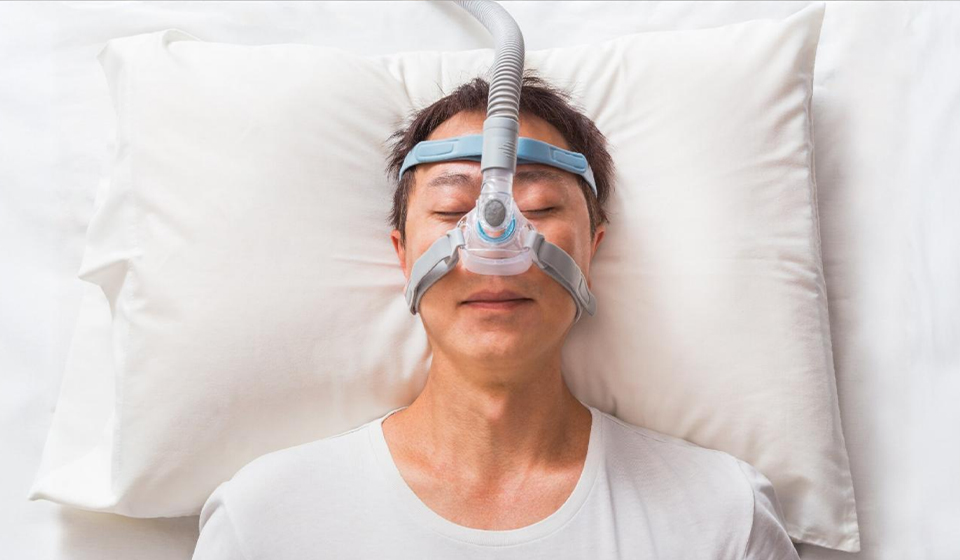If you’ve been struggling with snoring, feeling tired during the day, or waking up with a dry mouth or headache, you might be dealing with a condition called sleep apnea. This common sleep disorder can affect your overall health and quality of life, but the good news is that it’s treatable. In this in-depth guide, we will explore the causes, symptoms, and treatment options for sleep apnea in Houston, TX, helping you better understand how this condition affects your body and how you can take steps to address it.
Causes of Sleep Apnea
Understanding the causes of sleep apnea can help you recognize if you are at risk. While several factors contribute to the development of sleep apnea, some of the most common causes include:
Obesity: Excess weight, particularly around the neck, can cause the airway to become narrower and increase the likelihood of airway obstruction during sleep. People who are overweight or obese are at a higher risk for developing obstructive sleep apnea.
Age: As people age, the muscles around the throat can weaken, which can lead to a higher risk of airway obstruction. Sleep apnea is more common in middle-aged and older adults, although it can affect people of any age, including children.
Alcohol and Sedatives: Consuming alcohol or sedatives before bedtime can relax the muscles in the throat, which may increase the likelihood of airway obstruction. It’s best to avoid these substances if you suspect you have sleep apnea.
Smoking: Smoking irritates the upper airway and increases inflammation, which can worsen sleep apnea symptoms. Smokers are more likely to develop sleep apnea and experience more severe symptoms compared to non-smokers.
Other Medical Conditions: Certain medical conditions, such as hypertension, diabetes, and heart disease, are associated with an increased risk of developing sleep apnea. If you have any of these conditions, it’s important to monitor your health and seek medical advice regarding sleep apnea.
Symptoms of Sleep Apnea
Sleep apnea can be difficult to detect on your own, as the symptoms often occur while you’re asleep. However, there are several signs and symptoms to look out for, both while you’re sleeping and during the day:
Loud Snoring: Loud, persistent snoring is one of the most common signs of obstructive sleep apnea. If your partner or family members have noticed that your snoring is unusually loud or interrupted by pauses in breathing, sleep apnea may be the cause.
Pauses in Breathing: A key symptom of sleep apnea is the frequent pauses in breathing while you’re asleep. These pauses may last several seconds and can occur hundreds of times during the night, leading to poor-quality sleep.
Choking or Gasping for Air: People with sleep apnea often wake up suddenly, gasping for air or choking. These episodes can occur throughout the night, leaving you feeling unrestrained and fatigued.
Excessive Daytime Sleepiness: Because sleep apnea disrupts the natural sleep cycle, people with the condition often feel extremely tired and sluggish during the day. If you frequently feel drowsy, despite getting what seems like a full night’s sleep, sleep apnea may be the culprit.
Morning Headaches: The lack of oxygen during the night can lead to headaches, especially upon waking. These headaches are often caused by changes in oxygen levels and poor-quality sleep.
Dry Mouth or Sore Throat: Waking up with a dry mouth or sore throat can also be a sign of sleep apnea, particularly if you breathe through your mouth during the night due to blocked airways.
Difficulty Concentrating: Sleep apnea can negatively affect cognitive function, leading to difficulty focusing, memory issues, and poor concentration. If you’re experiencing these symptoms regularly, it may be due to poor sleep quality caused by sleep apnea.
Diagnosis and Treatment
If you suspect you have sleep apnea, it’s essential to seek a professional diagnosis. A healthcare provider, such as a dentist in Houston, TX, or a sleep specialist, may recommend a sleep study to monitor your breathing patterns during the night. This study will help determine the severity and type of sleep apnea you have.
Treatment for sleep apnea varies depending on the severity of the condition and its underlying causes. Options may include:
- Lifestyle Changes: Losing weight, avoiding alcohol, and quitting smoking can help alleviate mild cases of sleep apnea.
- Oral Appliances: For mild to moderate cases of obstructive sleep apnea, dental devices, also known as oral appliances, can help reposition the jaw and prevent airway obstruction.
- Surgery: In severe cases, surgical interventions may be needed to remove excess tissue or reposition the jaw to keep the airway open.
Conclusion
At Unident Family Dentistry in Houston, TX, we specialize in helping patients with sleep apnea. Our team can provide effective oral appliance therapy, designed to alleviate symptoms and improve your quality of life. Contact us today to schedule a consultation and take the first step toward better sleep and better health!






